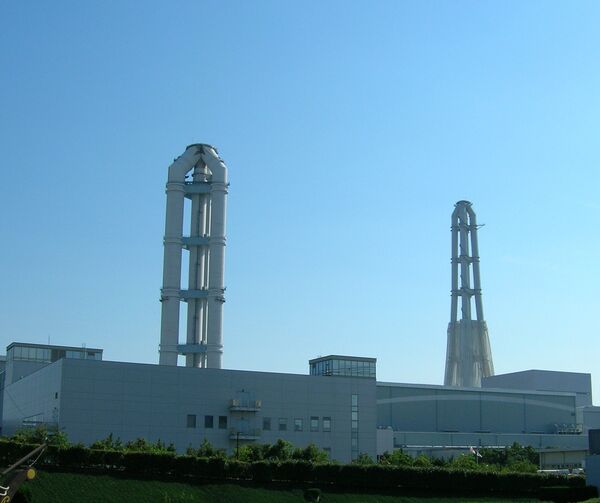TOKYO, September 23 (RIA Novosti) – The future of Japan's energy industry lies in the creation of a "subnuclear" society that will not depend on nuclear power plants and will rely on combined-cycle thermal power stations instead, Hiroyuki Arai, member of the House of Councillors in the Diet (Japan's parliament), told RIA Novosti Tuesday.
"Currently, Japan has technologies that could enable it to raise the efficiency of thermal power plants to 40-50 percent. These are combined-cycle thermal power stations with very high energy efficiency. It's IGCC technology," Arai, who is a member of Japan's New Reform Party (Shinto Kaikaku), said.
Explaining the mechanism of the combined-cycle power stations, Arai said that "Thermal energy released as a result of the combustion process powers the turbine that generates heat, which, in turn, is also used to power the turbine's rotation."
According to Arai, the new technology cuts the release of toxic waste materials by 40-50 percent.
"We could use the old thermal power stations while simultaneously creating power plants that would run on liquefied natural gas. In this sense, we really hope for the supply of gas from Russia," Arai added.
Arai was born in the Fukushima prefecture, which was hit by a 9.0-magnitude earthquake and a subsequent tsunami in March 2011 that caused a partial meltdown of three of the nuclear reactors at the Fukushima Daiichi nuclear power plant.
The incident, which was the world's worst nuclear disaster since the Chernobyl catastrophe of 1986, is final proof of the fact that nuclear power plants are not safe, Arai believes.
"I stand for a "subnuclear society." It will change the structure of energy consumption and production and it will not need nuclear power plants. A society that will surpass the need for nuclear energy. It will not make the poor live in a dangerous environment for the sake of the wellbeing of large cities," Arai said, noting that people in Japan"s poorer regions agree to the construction of nuclear power plants out of necessity.
Japanese families could also produce their own energy at energy farms, or ene-farms, which are a combined system of extracting energy using heat and gas, existing only in Japan, Arai explained.
An ene-farm can supply a family with 20 percent of the total amount of energy it needs, but few families can afford it, since the average cost of the system is about $15 thousand, according to Arai.


